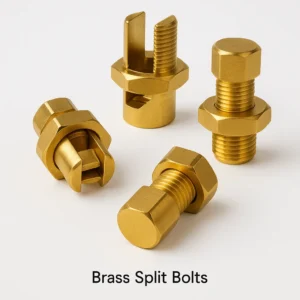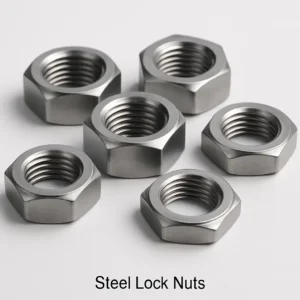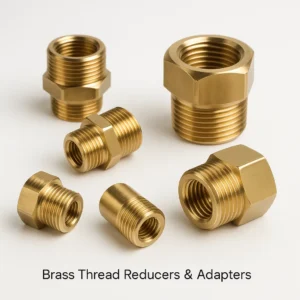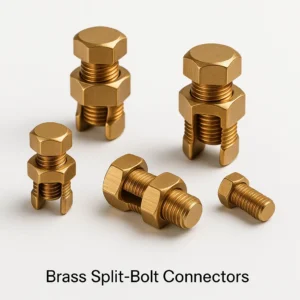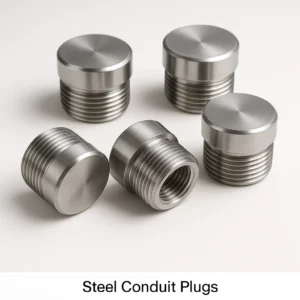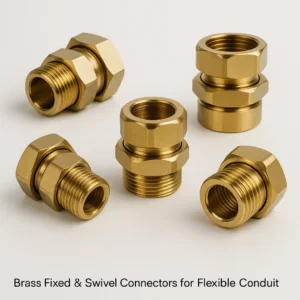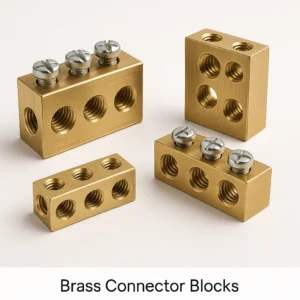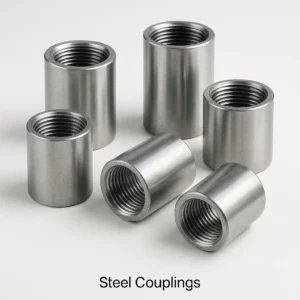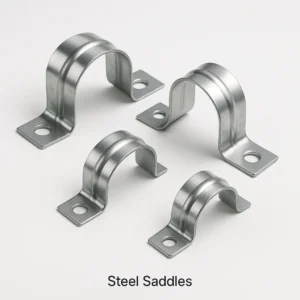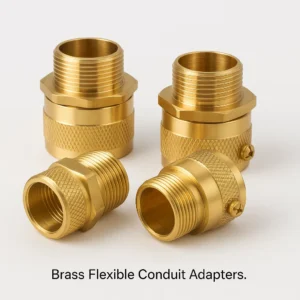Precision-Engineered Brass Terminal Blocks: The Ultimate Guide for Industrial Electrical Systems
We are one of the leading manufacturers and exporters of precision-engineered Brass Terminal Blocks from India. We have been supplying superior quality electrical components and high-performance Brass Terminal Blocks to the global market for many decades, establishing a formidable reputation for reliability, technical excellence, and competitive pricing. Our state-of-the-art manufacturing facility in Jamnagar is equipped with advanced machinery and is supported by a highly skilled engineering team dedicated to producing components that meet the most stringent international standards. Our Brass Terminal Blocks are renowned for their exceptional electrical conductivity, superior corrosion resistance, and excellent mechanical strength, making them the preferred choice for a multitude of industrial applications. We specialize in providing both standard and customized terminal block solutions, ensuring a perfect fit for your specific electrical connection requirements. Our commitment extends beyond manufacturing to encompass robust customized packaging, timely global logistics, and unparalleled customer support, solidifying our position as a trusted partner in the global supply chain.
Comprehensive Overview of Brass Terminal Blocks
Brass Terminal Blocks are fundamental electromechanical components used to securely connect and organize multiple electrical wires within a circuit. The primary function of a terminal block is to provide a safe, organized, and reliable connection point, facilitating easy installation, maintenance, and modification of complex electrical systems. The strategic choice of Brass as the core material leverages its innate properties, most notably its high electrical conductivity—approximately 28% that of Copper—and its excellent malleability for complex machining operations. Furthermore, Brass offers superior corrosion resistance, especially against galvanic corrosion, and possesses high tensile strength, ensuring that the screw clamping mechanism maintains a secure and vibration-resistant connection over time. These blocks are integral in power distribution systems, industrial control panels, PCB mounting, and various types of machinery, providing a critical link in electrical safety, system integrity, and operational efficiency.
In-Depth Look at Standard Barrier-Type Brass Terminal Blocks
Our Standard Barrier-Type Brass Terminal Blocks represent our core product line, designed for general-purpose applications requiring robust performance and reliability. Manufactured from high-grade C26000 Cartridge Brass, these blocks offer an optimal balance of conductivity and durability. The manufacturing process involves precision cold heading and CNC machining to achieve consistent dimensional accuracy and a smooth, flawless surface finish. A typical standard block features a robust Polyamide 6.6 (PA66) insulator with a UL 94 V-0 flammability rating, ensuring excellent electrical isolation and flame retardancy. They are designed with a proven screw clamping system, using stainless steel screws to prevent seizing and ensure a long service life. They are universally applicable in industrial control panels, railway signaling equipment, and HVAC system wiring.
Technical Specifications: Standard Barrier-Type Series
| Parameter | Specification | Tolerance |
|---|---|---|
| Material (Conductor) | C26000 Brass (CuZn30) | – |
| Material (Insulator) | PA66 (Nylon 6.6) | – |
| Current Rating | 20 A | – |
| Voltage Rating | 300 V | – |
| Operating Temperature | -40°C to +105°C | – |
| Pitch | 5.0 mm, 10.0 mm, 15.0 mm | ± 0.1 mm |
| Wire Size Range | 0.5 mm² to 4.0 mm² (22-12 AWG) | – |
| Screw Type | Stainless Steel A2-70 | – |
| Torque Rating | 0.5 – 0.6 Nm | – |
Advanced High-Current Brass Terminal Blocks
Our High-Current Brass Terminal Blocks are engineered for demanding applications that involve higher ampacity loads and increased mechanical stress. Constructed from high-conductivity C27200 Brass, this variant is capable of handling elevated currents with minimal voltage drop and heat generation. The design incorporates a larger contact area and a heavier-duty clamping screw, often M5 or M6, to ensure a gas-tight connection even under significant thermal cycling and vibration. The insulating body is typically made from Polyphthalamide (PPA) or Thermoplastic Polyester (PBT), materials known for their superior Comparative Tracking Index (CTI) and high-temperature stability. These high current terminal blocks are essential in power supply units, welding machine transformers, and renewable energy inverters.
Technical Specifications: High-Current Series
| Parameter | Specification | Tolerance |
|---|---|---|
| Material (Conductor) | C27200 Brass (CuZn37) | – |
| Material (Insulator) | PBT (UL 94 V-0) | – |
| Current Rating | 50 A to 150 A (Model Dependent) | – |
| Voltage Rating | 600 V | – |
| Operating Temperature | -40°C to +130°C | – |
| Pitch | 15.0 mm, 20.0 mm, 25.0 mm | ± 0.15 mm |
| Wire Size Range | 4.0 mm² to 35 mm² (12-2 AWG) | – |
| Screw Type | Stainless Steel A4-80 (for corrosion resistance) | – |
| Torque Rating | 1.2 – 2.5 Nm | – |
Specialized Pluggable Brass Terminal Blocks
Our Pluggable Brass Terminal Blocks introduce a modular design, offering unparalleled flexibility for systems that require frequent disconnection for maintenance or testing. This design features a male header that is permanently mounted to the PCB or DIN rail and a female connector that can be easily plugged and unplugged. The Brass components are precision-stamped and formed to ensure perfect alignment and a low-resistance connection. This type of block significantly reduces machine assembly time and enhances serviceability in complex factory automation systems, telecommunications infrastructure, and programmable logic controller (PLC) cabinets. The pluggable connector system is a testament to our focus on innovative solutions that improve end-user efficiency.
Technical Specifications: Pluggable Series
| Parameter | Specification | Tolerance |
|---|---|---|
| Material (Conductor) | C26000 Brass, Tin Plated | – |
| Material (Housing) | PA66, 94V-0 | – |
| Current Rating | 10 A per circuit | – |
| Voltage Rating | 250 V | – |
| Operating Temperature | -40°C to +105°C | – |
| Number of Positions | 2 to 24 positions | – |
| Pitch | 5.08 mm, 10.16 mm | ± 0.1 mm |
| Mating Cycles | > 50 cycles | – |
Material Grades and International Standards
Our Brass Terminal Blocks are manufactured from a range of internationally recognized Brass alloys to meet diverse application needs and regional specifications.
-
USA (ASTM): C26000 (Cartridge Brass), C27200 (Brass, CuZn37), C28000 (Muntz Metal)
-
Europe (DIN/EN): CuZn37 (CW508L), CuZn36 (CW507L)
-
India (IS): IS 6911 CuZn30, IS 419 CuZn37
-
Japan (JIS): C2600, C2680, C2801
Our products are designed to comply with international standards for safety and performance, including UL 1059 (Terminal Blocks), IEC 60947-1, and DIN VDE 0611.
Material Property Table for Brass Alloys
| Property / Alloy | C26000 (CuZn30) | C27200 (CuZn37) | C28000 (CuZn40) |
|---|---|---|---|
| Electrical Conductivity (% IACS) | 28% | 26% | 28% |
| Tensile Strength (MPa) | 325 – 410 | 340 – 480 | 370 – 520 |
| Corrosion Resistance | Excellent | Very Good | Good |
| Machinability (% C36000 Std) | 30% | 40% | 20% |
| Primary Application | Standard Blocks, Good Formability | High-Strength, High-Current | High-Strength, Structural |
Manufacturing Processes and Quality Assurance
The production of our terminal blocks involves a multi-stage process to ensure peak performance. It begins with precision cold forging of the Brass rod to create the basic terminal form, followed by high-speed CNC machining to achieve exact dimensions and threading. We employ progressive die stamping for high-volume components like contact plates. Each batch undergoes rigorous inspection, including salt spray testing per ASTM B117 to validate corrosion resistance and milliohm testing to verify electrical conductivity. Our standard machining tolerances are held within ±0.05mm, with tighter tolerances available upon request. Our quality management system ensures traceability and consistency from raw material to finished goods.
Plating and Finishing Options
To enhance performance and longevity for specific environments, we offer various plating finishes:
-
Bare Brass (Natural): For standard, non-corrosive environments where solderability is not a priority.
-
Electrolytic Tin Plating: Excellent solderability and good protection against oxidation. Typical thickness: 3-5µm.
-
Nickel Plating: Provides superior corrosion and wear resistance. Ideal for harsh environments. Typical thickness: 5-8µm.
-
Silver Plating: Offers the lowest contact resistance for high-frequency and high-temperature applications. Typical thickness: 3-6µm.
Industries Served and Performance Metrics
Our components are critical in sectors where electrical failure is not an option:
-
Industrial Automation & Control Panels
-
Power Distribution & Switchgear
-
Automotive & Transportation (Rail, EV)
-
Renewable Energy (Solar/Wind Inverters)
-
Telecommunications & Data Centers
-
Consumer Durables & White Goods
-
Marine and Offshore Equipment
Key Performance Metrics: Our terminal blocks are characterized by their current and voltage ratings, operating temperature range, flammability rating (UL 94), Comparative Tracking Index (CTI > 600V), and mechanical metrics like pull-out force and screw torque retention.
Frequently Asked Questions (FAQ)
1. What are the primary benefits of using Brass over other materials like Steel or Aluminum in terminal blocks?
Brass offers an ideal combination of high electrical conductivity, inherent corrosion resistance, and excellent machinability, which is crucial for creating precise screw threads and maintaining a secure, low-resistance connection over time.
2. How do you ensure the corrosion resistance of your Brass Terminal Blocks for marine applications?
For harsh environments, we recommend selecting our Nickel-plated Brass Terminal Blocks and can perform extended salt spray testing to certify performance, often exceeding 96 hours per ASTM B117 without visible corrosion.
3. Can you manufacture terminal blocks according to our specific technical drawings and dimensions?
Absolutely. Our core strength lies in our custom engineering capabilities. Our team can review your drawings and often suggest value engineering changes to optimize for cost, performance, and manufacturability.
4. What is the standard turnaround time for an order of custom-designed terminal blocks?
Our standard lead time for custom projects is typically 4 to 6 weeks, which includes tooling fabrication, sample approval, and production. We also offer expedited services for urgent requirements.
5. What international standards do your products comply with?
Our manufacturing and final products are aligned with global standards including UL 1059, IEC 60947, ASTM, DIN, and IS specifications. Certifications can be provided upon request.
6. What is the maximum current rating your high-current series can handle?
The ampacity varies with the specific model and wire size, but our high-current series is designed to handle currents from 50A up to 150A, with derating factors applied for elevated ambient temperatures and specific plating.
7. Do you provide samples for testing and validation?
Yes, we encourage customers to evaluate our product quality. We provide pre-production samples for most of our standard and custom terminal block designs to ensure they meet your application requirements.
8. What packaging options do you offer to prevent damage during international shipping?
We use anti-corrosive VCI packaging and can provide customized packaging with your company’s logo and labels. Components are packed in reels, blister packs, or master cartons based on the product and customer preference to ensure safe transit.
9. How does your company handle quality control throughout the manufacturing process?
We employ a comprehensive quality management system with in-process checks, Statistical Process Control (SPC), First Article Inspection (FAI), and final lot inspection to ensure every shipment meets our stringent quality parameters.
10. What is the main advantage of using pluggable terminal blocks?
The primary advantage is the facilitation of modular system design and ease of maintenance, allowing for quick disconnection of sections without tooling, thereby significantly reducing machine downtime during service.
Why Choose Jamnagar Brass Components?
-
Three Decades of Global Expertise: With over 30 years of experience, we possess an unparalleled understanding of the global market and technical requirements for Brass electrical components.
-
Unmatched Customization: We are not just a supplier; we are a solutions provider. Our engineering team works with you to customize designs, materials, and finishes to meet exact specifications.
-
Proven Manufacturing Flexibility: We understand market dynamics and offer flexibility in production scheduling to meet your critical project timelines, including handling both low-volume and high-volume orders.
-
Superior Customer and Engineering Support: From the first inquiry to after-sales, our team provides clear communication and technical support, suggesting practical technical drawing changes for optimization and cost savings.
-
Robust Global Supply Chain: As seasoned exporters from India, we have mastered the logistics of delivering products safely and on time to any corner of the world, supported by our strategic location and partnerships.
Packaging and Shipping
We understand that the product must arrive in perfect condition. Our standard packaging includes anti-tarnish poly bags, partitioned inner boxes, and strong, export-worthy corrugated outer cartons. We offer customized packaging solutions, including branding with your company’s logo and barcoding for your inventory system. We ship via reliable international air and sea freight partners, ensuring seamless and cost-effective delivery to your doorstep, supported by professional documentation.
Glossary of Terms
-
Ampacity: The maximum current, in amperes, that a conductor can carry continuously under conditions of use without exceeding its temperature rating.
-
Cold Heading: A metal forming process where the Brass wire is shaped at room temperature to create the terminal’s basic form, ensuring grain flow and superior strength.
-
Comparative Tracking Index (CTI): A numerical value that quantifies the electrical breakdown (tracking) properties of an insulating material. Higher values indicate better performance in humid and polluted environments.
-
Pluggable Terminal Block: A type of terminal block with a separable connector interface for easy installation and removal, enhancing modularity.
-
Salt Spray Test: An accelerated corrosion test method used to verify the corrosion resistance of a material or plating finish, simulating harsh environmental conditions.
-
Pitch: The center-to-center distance between two adjacent contact points or poles in a terminal block.
Request Your Quote Today!
Ready to power your projects with the reliability of Jamnagar Brass Terminal Blocks? Contact our technical sales team today for a competitive quotation, a detailed product brochure, or to discuss your custom requirements. Let us be your trusted partner for high-quality electrical components from India.
Jamnagar Brass Components
Office Address: 1406, 14th Floor, Dalamal Tower, Nariman Point, Mumbai – 400021, Maharashtra, INDIA
Factory Address: Plot 10B, GIDC Industrial Estate, Shanker Tekari, Udyognagar, Jamnagar, Gujarat, India – 361004
Phone: +91-22-43449300 / +91-22-43449323
Email: sales@jambrass.com
Contact Person: Mr. Mehul Vora


